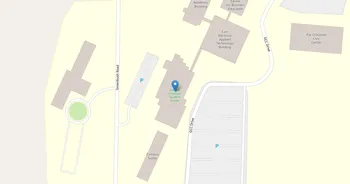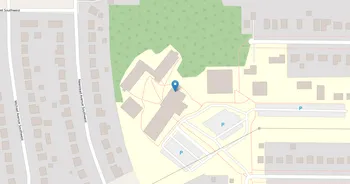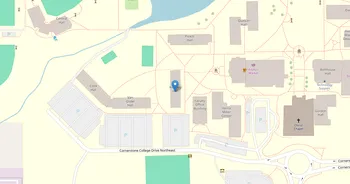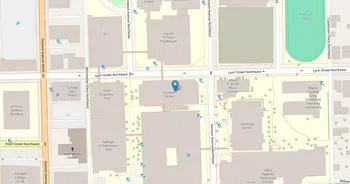Kettering University : Overview, Courses, Scholarships & Rankings
About Kettering University
Once a training ground for the auto industry, Kettering University is known for blending rigorous engineering, computing, and business study with real workplace experience. Labs and maker spaces hum with project teams, while studios and quiet corners support design and coding. Students find practical help too, from tutoring and advising to career coaching and wellness services.
Campus life leans hands-on and collaborative, with robotics and racing teams, design clubs, and intramurals. The culture values curiosity and get-it-done energy. Flint adds grit and heart with galleries, the market, river trails, and chances to volunteer or work with startups. Kettering has a reputation for co-op style learning and strong industry ties in mobility and manufacturing, and its alumni network runs deep. Notable alum: Mary Barra of General Motors.
Key Institutional Details
Contact & Profile
Academic & Institutional
Academic Programs & Fields of Study
Kettering University offers 21 degree programs across 7 major academic fields, graduating approximately 505 students annually. The most popular fields by graduate volume are Engineering (9 programs, 321 graduates), Business (5 programs, 96 graduates), Computer & IT (1 programs, 49 graduates), Eng. Technologies (1 programs, 21 graduates) and Biological Sciences (2 programs, 13 graduates). Explore program details, award levels, and graduate demographics below.
Engineering (9 programs, 321 graduates)
Engineering Sciences and Applied Technology Solutions
| Program Name | Graduates | Gender Distribution | Award Levels | CIP Code |
|---|---|---|---|---|
| Mechanical Engineering | 165 |
|
Bachelor's
|
14.1901 |
| Computer Engineering | 35 |
|
Bachelor's
|
14.0901 |
| Electrical and Electronics Engineering | 33 |
|
Bachelor's
|
14.1001 |
| Engineering Science | 31 |
|
Master's
|
14.1301 |
| Chemical Engineering | 23 |
|
Bachelor's
|
14.0701 |
| Industrial Engineering | 20 |
|
Bachelor's
|
14.3501 |
| General Engineering | 7 |
|
Bachelor's
Master's
|
14.0101 |
| Engineering Physics | 5 |
|
Bachelor's
|
14.1201 |
| Electrical and Electronics Engineering | 2 |
|
Master's
|
14.1099 |
Business (5 programs, 96 graduates)
Business Administration, Marketing and Entrepreneurship
| Program Name | Graduates | Gender Distribution | Award Levels | CIP Code |
|---|---|---|---|---|
| Business Administration and Management | 43 |
|
Bachelor's
Master's
|
52.0201 |
| Business and Management Services | 39 |
|
Master's
|
52.9999 |
| Operations Management and Supervision | 8 |
|
Master's
|
52.0205 |
| Management Science | 4 |
|
Master's
|
52.1301 |
| Logistics and Supply Chain Management | 2 |
|
Master's
|
52.0203 |
Computer & IT (1 programs, 49 graduates)
Computer Science, Information Technology and Cybersecurity
| Program Name | Graduates | Gender Distribution | Award Levels | CIP Code |
|---|---|---|---|---|
| Computer Science | 49 |
|
Bachelor's
Master's
|
11.0701 |
Eng. Technologies (1 programs, 21 graduates)
Applied Engineering Technologies and Technical Support
| Program Name | Graduates | Gender Distribution | Award Levels | CIP Code |
|---|---|---|---|---|
| Industrial Engineering Management | 21 |
|
Master's
|
15.1501 |
Biological Sciences (2 programs, 13 graduates)
Life Sciences, Biotechnology and Biomedical Research
| Program Name | Graduates | Gender Distribution | Award Levels | CIP Code |
|---|---|---|---|---|
| Biology and Biological Sciences | 7 |
|
Bachelor's
|
26.0101 |
| Biochemistry | 6 |
|
Bachelor's
|
26.0202 |
Physical Sciences (2 programs, 4 graduates)
Chemistry, Physics and Earth Sciences Research
Mathematics (1 programs, 1 graduates)
Mathematical Sciences, Statistics and Computational Analysis
| Program Name | Graduates | Gender Distribution | Award Levels | CIP Code |
|---|---|---|---|---|
| Applied Mathematics | 1 |
|
Bachelor's
|
27.0301 |
Admission Requirements & Test Scores
Comprehensive overview of admission criteria, standardized test score ranges, and application requirements for prospective students at Kettering University.
Application Requirements
Data based on IPEDS for 2022-2023 academic year. Test score ranges represent the middle 50% of admitted students (25th-75th percentile). Requirements may vary by program.
Tuition, Fees & Estimated Costs
Overview of tuition rates, housing, and other annual education expenses for undergraduate and graduate students
Financial Aid & Student Support
Summary of scholarships, grants, student loans, and financial aid statistics for undergraduate students
Student Success Metrics
Graduation rates and post-graduation earnings to help assess student outcomes and long-term value of education.
Loan Burden & Repayment Outcomes
Breakdown of loan repayment rates and student debt levels by income and dependency status.
Frequently Asked Questions
Find answers to the most common questions about Kettering University
How much does it cost to attend Kettering University?
The annual tuition at Kettering University is $45,380 for in-state students. When including room and board, books, and other expenses, the total estimated cost is approximately $60,250 for in-state students. Additional costs include room and board $9,500 and books and supplies $1,100.
Data based on IPEDS program completions for 2022-2023 academic year. Tuition and cost estimates are approximate and may not include all fees, personal expenses, or transportation costs.
What academic programs and degree levels does Kettering University offer?
Kettering University offers 21 academic programs across 7 major fields of study, with available degree levels: Bachelor's, Postbac Cert., Master's.
Most popular program areas include:
- Engineering Sciences and Applied Technology Solutions (9 programs)
- Business Administration, Marketing and Entrepreneurship (5 programs)
- Computer Science, Information Technology and Cybersecurity (1 programs)
- Applied Engineering Technologies and Technical Support (1 programs)
- Life Sciences, Biotechnology and Biomedical Research (2 programs)
Data based on IPEDS program completions for 2023-2024 academic year. Numbers reflect programs where students graduated, not all offered programs.
What is the acceptance rate for Kettering University?
Kettering University has an 79.1% acceptance rate and a 14.8% yield rate, making it selective.
Admission statistics breakdown:
- Total applicants: 1,951
- Students admitted: 1,543
- Students enrolled: 228
Data based on IPEDS for 2022-2023 academic year. Admission statistics may vary by program and application cycle.
What financial aid and scholarships are available at Kettering University?
Kettering University provides financial aid to 21% of first-time, full-time students, with average grants of $24,994 and average loans of $12,995.
Average financial aid amounts by type:
- Pell grants: $5,261
- State/Local grants: $2,900
- Institutional grants: $22,467
- Federal loans: $5,505
The university supports 294 students with grants and 149 students with loans annually.
Data based on IPEDS for 2022-2023 academic year. Financial aid amounts and percentages may vary by program, enrollment status, and individual circumstances.
What is the average salary for Kettering University graduates?
Kettering University graduates earn a median salary of $80,275 after 6 years and $94,823 after 10 years.
The salary range 10 years after graduation spans from $66,125 (25th percentile) to $115,611 (75th percentile).
Data based on IPEDS for 2022-2023 academic year. Salary data reflects graduates who received federal financial aid (approximately 60% of all graduates). Actual earnings may vary significantly based on program, location, and individual circumstances.
Related Universities




Found something useful? Help others discover it too! Share with friends, on social media, or save for later - every share helps someone find the information they need.